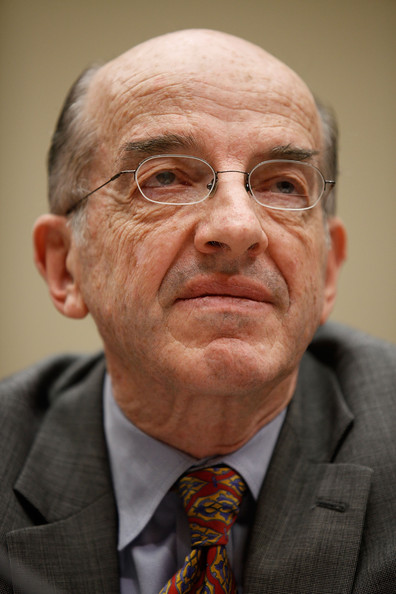The Good, The Bad, The Ugly

Monday, July 12, 2021
Digital Beat
The Good, The Bad, The Ugly

July 2021 brings us things to celebrate, things to denigrate, and things to absolutely deplore. What follows is one citizen’s list of what fits where concluding with a few modest suggestions to accentuate the positives and eliminate the negatives. My focus, as usual, is mostly on communications.
The Good
On July Fourth we celebrated our Declaration of Independence for the 245th time. I also celebrated what I think is a belated, but growing, declaration of our interdependence. No doubt the sufferings and (mostly) shared sacrifices imposed by the pandemic sharpened many people’s understanding of how dependent we each are on the actions of others and that we progress together when we work together. The defaults and divisiveness of the last Administration also played an important role in convincing a majority of us that viewing government as the enemy is no recipe for fixing the nation’s pressing needs. For example, an active public sector working alongside the private sector is what built the nation’s infrastructure over the course of our history. As our roads, bridges, ports, airports, railroads, and other public facilities crumble and decay, we are awakening to the need to rebuild and for government to play its historic role of marshaling our people and our resources to get the job done.
Similarly, we have come to see that high-speed broadband has become an essential component of modern-day infrastructure. Imagine how much worse the pandemic would have been without the broadband internet to help us perform our jobs, educate our kids, care for our health, purchase our groceries, stay in touch with one another, even to practice our religions. But wait—millions of our fellow citizens don’t have broadband connectivity and were, therefore, unable to do these essential tasks. Hopefully, this will change. The ambitious broadband proposals of the Biden Administration have rightly gained strong public support, not just in one party, but both—notwithstanding the efforts of naysayers on Capitol Hill and elsewhere who, even in their minority role, are doing their best to block Senate support for infrastructure and for tackling the crying need to get low-cost, high-speed broadband into every household in the nation.
We are also witnessing the reinvigoration of public agencies to protect the public interest. President Biden made that clear in his Executive Order last week. The Federal Trade Commission is already beefing up to be the active consumer protection agency it was meant to be. The Federal Communications Commission will be next in line, but it still requires one additional commissioner to fill out its current two-two membership, and it needs the President to name a permanent Chair. Even at less than full strength, its interim Chair, Commissioner Jessica Rosenworcel, is getting the agency back on course. As permanent Chair, she would lead the way on broadband for all, an open internet, network neutrality, and tackling communications industry consolidations that are hampering competition, rising consumer costs, and gutting community news.
So, yes, good things are happening. The pandemic ebbs. We have Presidential leadership that is off to the best start of any since the days of Franklin D. Roosevelt. We have a new Congress under new leadership addressing real problems (although the short legislative calendar for the remainder of this year makes a lot of needed reform unlikely in 2021, and 2022 will be a campaign-centric year). Best of all, we have a majority of people who are friendlier to reform than they have been in several years.
The Bad
Many of our most important institutions stand in the way of needed progress. Some are old, others more recent. Some are private, others public. Each deserves more attention than can be included in a brief blog. Certainly, the ever-increasing dominance of consolidated and often monopolistic businesses has thwarted the kind of robust competition that an open, dynamic, and opportunity-creating economy demands. We see this almost across the board, from banking to airlines to healthcare to pharmacies to food to broadcast to the internet and to many other sectors. It’s easy to see in retrospect how it happened: special interest money distorted our political system and an outlandishly out-of-date ideology took root in the minds of people who should know better. It costs us as consumers; it costs us as citizens.
What special interests wanted, heavily lobbied and dishonestly redistricted politicians put in place. And, if helpful laws were already in place, the pols undermined them. Witness anti-trust laws, the deregulation of consumer protections across dozens of business and financial sectors, the subjugation of labor unions, the perpetuation of horrible civil rights injustices, gender inequalities, campaign financing limitations, and electoral suppression.
Then there are the ills that sprang from the minds of career-oriented politicians themselves. The filibuster that currently stymies needed progress in the United States Senate springs from so-called “originalist” interpreters of the Constitution who have no clue that the Founders simply did not envision such a device for the purpose of blocking general legislation. The filibuster is a Gag Rule, every bit as insidious as the Gag Rules that John Quincy Adams spent years protesting when he went to Congress after being President. These originalists are the same folks, by the way, who work day-in and day-out to undermine government’s ability to regulate commerce. Would that these self-proclaimed Constitutional purists had taken the time to read Alexander Hamilton, James Madison, and The Federalist Papers.
The Ugly
I offer two candidates for true ugliness here. One is a rapidly deteriorating judiciary. The increasing partisanship that bedevils too much of our court system threatens to stop needed change in its tracks. That’s bad news indeed for the issues mentioned above: civil rights, consumer protections, worker rights, open elections, one person-one vote, gender equality, and competition in business, to name but a few.
Anti-trust cases have been much in the news recently, but many courts are subverting efforts to put the brakes on enterprises that wield more power than should be permissible in a democratic society. Anti-trust initiatives have chalked up a few successes over the years, but even more failures. Now courts are reverting to the Gilded Age jurisprudence of the nineteenth century, before anti-trust laws existed, to claim they lack authority to break up companies that control both the production and distribution of goods and services. I have always thought this kind of control is what in fact constitutes monopoly. Not so, we are told in recent decisions, such as the AT&T-Time Warner case. Going forward, let’s not put all of our hopes for reigning in gigantic internet platforms into this one basket.
Several ideas have been suggested to change how courts work, from having more judges, a better process for selecting them, ending the political election of judges, term limits, scaling back the expansion of powers Congress gave the courts in the 1920s, putting Supreme Court judges back to occasionally “riding the circuit” as they used to do—giving them a better feel for cases early on so they could act more in synch with other courts instead of the dizzying reversals and re-reversals of decisions as circuit courts reverse district courts and appeals courts reverse circuit courts and the Supreme Court finally settles this head-spinning process. Some of these reforms may be better than others, but reform the courts we must. While it is very encouraging that the new Administration is nominating better-qualified individuals for vacant judgeships, this is a years-long process that cannot alone provide the system of justice our nation so badly needs.
Regular readers of these musings will guess my other “ugly”. It is the sad state of our news and information infrastructure that is failing to provide us with the facts and information citizens must have if we are to perpetuate self-government. Wait a minute, some will say, isn’t your friendly blogger getting carried away on this one? I don’t think I am. When citizens are denied fact-based investigative journalism, when giant media companies have shuttered newsrooms in communities across the nation, when half of all newsroom employees have lost their jobs in recent years, when loud and insulting opinion-shouting has replaced calm presentation of hard news, when media stoke the flames of partisanship, when whole “beats” like statehouse and community coverage have disappeared in so many places, when corporate-produced “infotainment” is seemingly all that matters to huge consolidated media companies, when public radio and television are starved for resources, when the transformational powers of the internet treat us merely as products to be sold to advertisers—then, my friends, something truly ugly is happening.
If we are to fix any of the ills discussed above, and others, we must first fix this. If we are to have reforms, we must have media that informs. If we are to have democracy, we must have media democracy. We need citizens—you and me—to take up this cause and organize to make sure elected officials at all levels understand that we are demanding a news and information system that serves the needs of successful self-government. We now have an opportunity to advance this goal. I hope I am right that the clouds are parting instead of gathering.
Michael Copps served as a commissioner on the Federal Communications Commission from May 2001 to December 2011 and was the FCC's Acting Chairman from January to June 2009. His years at the Commission have been highlighted by his strong defense of "the public interest"; outreach to what he calls "non-traditional stakeholders" in the decisions of the FCC, particularly minorities, Native Americans and the various disabilities communities; and actions to stem the tide of what he regards as excessive consolidation in the nation's media and telecommunications industries. In 2012, former Commissioner Copps joined Common Cause to lead its Media and Democracy Reform Initiative. Common Cause is a nonpartisan, nonprofit advocacy organization founded in 1970 by John Gardner as a vehicle for citizens to make their voices heard in the political process and to hold their elected leaders accountable to the public interest. Learn more about Commissioner Copps in The Media Democracy Agenda: The Strategy and Legacy of FCC Commissioner Michael J. Copps
The Benton Institute for Broadband & Society is a non-profit organization dedicated to ensuring that all people in the U.S. have access to competitive, High-Performance Broadband regardless of where they live or who they are. We believe communication policy - rooted in the values of access, equity, and diversity - has the power to deliver new opportunities and strengthen communities.
© Benton Institute for Broadband & Society 2021. Redistribution of this email publication - both internally and externally - is encouraged if it includes this copyright statement.
For subscribe/unsubscribe info, please email headlinesATbentonDOTorg






